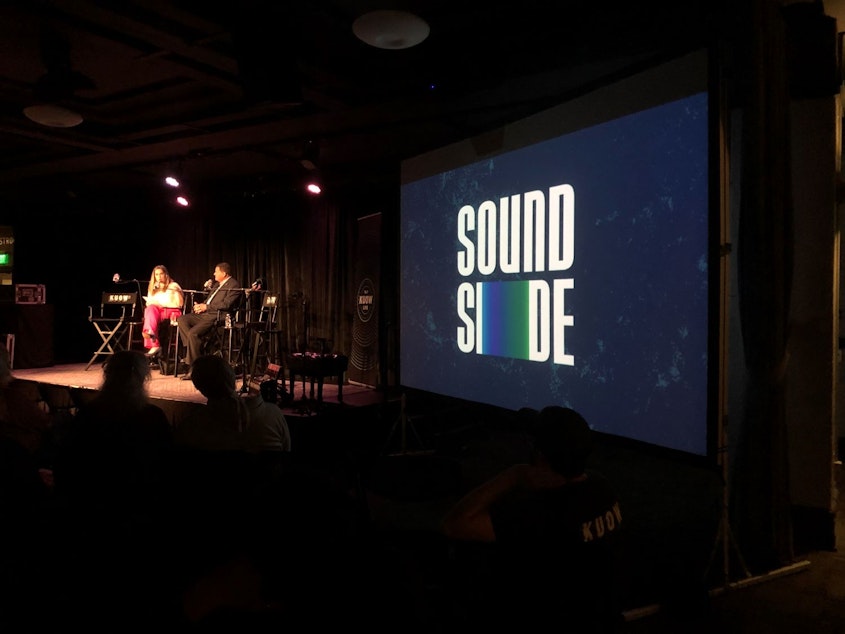Sound it Out: Seattle graffiti update and a revisit to our electoral system

We're a show built around you – our listeners.
Every other week, we bring you a segment called "Sound it Out," to broadcast your thoughts about the show and answer questions about stories we've covered.
Today, we're looking back on our conversations with Mayor Bruce Harrell on graffiti in Seattle and why we vote for uncontested judges.
Just before last month's election, we talked with Seattle University's Patrick Schoettmer about why we vote for judges at all in Washington State. It's hard for everyday voters to research the candidates, and many judges run unopposed.
"Electing state judges is an old reform from last century actually, " said Schoettmer. "It's a way to try to introduce accountability into the judiciary itself. Judges have to get put in there in some way."
Soundside received a follow-up question from a listener who wondered if the candidate with the most votes, no matter how low the total, gets the job. Is there a minimum number of votes that candidates need to get to win?
We reached out to Patrick to get an answer.
"We have a plurality electoral system," Schoettmer said. "So at least in the state of Washington, if they're running unopposed, they're going to win reelection."
Sponsored
Soundside also received an anonymous note from someone who argued that part of the reason judges run unopposed is that it's a bit of an "insider's club." It's hard to get elected if you don't know the right people.
We asked Patrick about this as well, and he said there is a bit of an old boys club in the world of judges. But while it is tough to run as an outsider, it isn't unheard of -- and outsiders don't always lose.
"Gloria Ochoa-Bruck, and she became the first Latina judge in Spokane County. But she had to run as an outsider and without a lot of the institutional support that a lot of other judicial candidates tend to get when they run for office," Schoettmer explained. "They're sort of like an unspoken network. It's not necessarily something nefarious, it's just that you're more likely to trust people, you know, and people you went to school with happened to be people that you know."
We also heard a number of comments about our segment last month on the Seattle mayor's plan to ramp up funding for cleaning up graffiti in the city. KUOW arts and culture reporter Mike Davis interviewed Mayor Bruce Harrell, who said that navigating graffiti as a nuisance and graffiti as art is ethically tricky:
"For me, it sort of boils down to either consent or what's wanted or unwanted for a property owner. There's a baseline, right? Hate crimes, racialized graffiti, things like that are graffiti and we want to not have that, period. Okay, that's for me, that's non-negotiable."
Sponsored
In his proposed budget, Mayor Harrell had requested $1.2 million to increase staffing and outreach for the graffiti rangers. These rangers would be part of Seattle Public Utilities and work with private businesses directly to clean up unwanted graffiti.
But that was during a more optimistic fiscal time. After we aired this interview, new city projections showed a growing revenue shortfall and during its budget-making negotiations, the City Council turned down that request for extra graffiti rangers funding.
Mayor Harrell's office told Soundside the city will still fund other anti-graffiti measures with $2 million in the Seattle Public Utilities' budget. But those extra graffiti Rangers the mayor wanted didn't make the cut.






